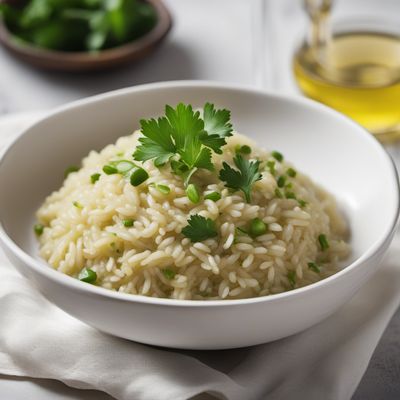
Ingredient
Lemon savory
The Zesty Herb: Lemon Savory and its Citrusy Twist
Lemon savory is a small, evergreen herb with delicate leaves that release a strong lemony aroma when crushed. It has a subtle citrus flavor with hints of thyme and mint. The leaves are small and narrow, ranging in color from light green to gray-green. Lemon savory is often used as a seasoning in marinades, dressings, sauces, and herb blends.
Origins and history
Lemon savory is native to the Mediterranean region and has been used in cooking for centuries. It was highly valued by ancient civilizations, including the Greeks and Romans, for its aromatic properties and culinary versatility. Lemon savory was believed to have medicinal properties and was used to treat various ailments. Today, it continues to be a popular herb in Mediterranean and Middle Eastern cuisines.
Nutritional information
Lemon savory is low in calories and contains essential vitamins and minerals, including vitamin C, vitamin A, and iron. It also possesses antioxidant properties that help protect the body against oxidative stress. A 1-tablespoon serving of lemon savory contains approximately 3 calories.
Allergens
There are no known allergens associated with lemon savory.
How to select
When selecting lemon savory, look for fresh, vibrant leaves that are free from wilting or discoloration. Opt for organically grown varieties whenever possible to minimize exposure to pesticides. Additionally, consider growing your own lemon savory plant for a readily available supply of fresh leaves.
Storage recommendations
To prolong the freshness of lemon savory, store it in the refrigerator wrapped in a damp paper towel or placed in a plastic bag. It can last for up to one week when stored properly. Alternatively, lemon savory leaves can be dried and stored in an airtight container for future use.
How to produce
Lemon savory can be easily grown in containers or in the ground, as long as it is provided with well-drained soil and ample sunlight. It is a hardy herb that requires minimal maintenance and can be harvested throughout the growing season.
Preparation tips
Lemon savory can be used in a variety of dishes, including marinades, dressings, sauces, and herb blends. It pairs well with poultry, fish, vegetables, and grains. Lemon savory can be added to roasted potatoes, grilled chicken, or used to infuse oils and vinegars. It can also be used as a garnish for soups and salads.
Substitutions
Lemon thyme or regular thyme can be used as substitutes for lemon savory, although they have slightly different flavor profiles. Lemon zest combined with thyme can also mimic the citrusy taste of lemon savory. If a milder flavor is desired, lemon verbena or lemon balm can be used as alternatives.
Culinary uses
Lemon savory is commonly used in Mediterranean and Middle Eastern cuisines. It is a key ingredient in dishes like za'atar, a popular herb blend, and is often used to flavor grilled meats, roasted vegetables, and salads. Lemon savory can also be used to infuse syrups, teas, and cocktails.
Availability
Lemon savory is commonly available in Mediterranean countries, such as Greece, Italy, and Turkey. It can also be found in specialty grocery stores or herb markets. Additionally, lemon savory seeds or plants can be purchased online for home cultivation.
More ingredients from this category

Thyme
The Fragrant Herb: Thyme
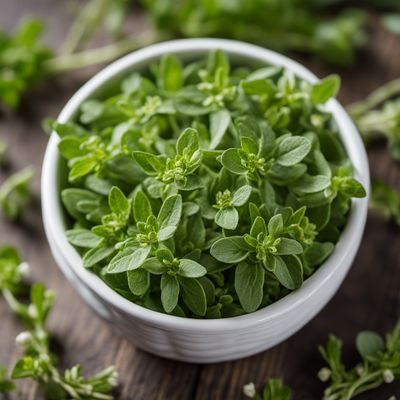
Cretan oregano
The Fragrant Herb of the Mediterranean

Winter savory
Savoring the Season: Exploring the Delights of Winter Savory
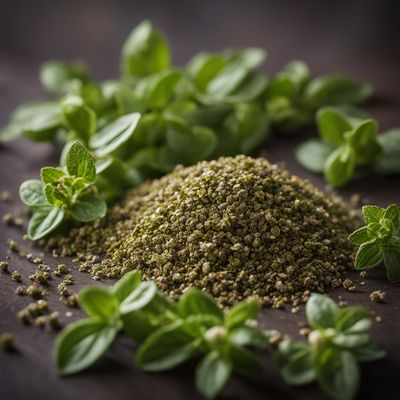
Syrian oregano
The Exotic Herb: Syrian Oregano

Creeping thyme
The Fragrant Delight of Creeping Thyme

Lemon thyme
The Zesty Herb
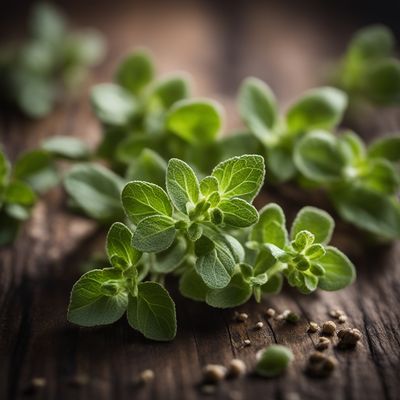
Oregano
The Herb of Mediterranean Delights
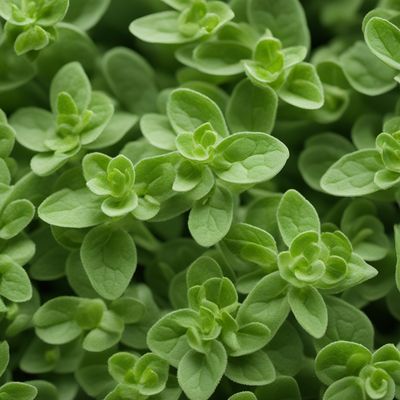
Marjoram
The Fragrant Herb: Marjoram

Mastic thyme
The Fragrant Herb: Unveiling the Aromatic Delights of Mastic Thyme

Summer savory
"The Herb of Warmth and Flavor"
